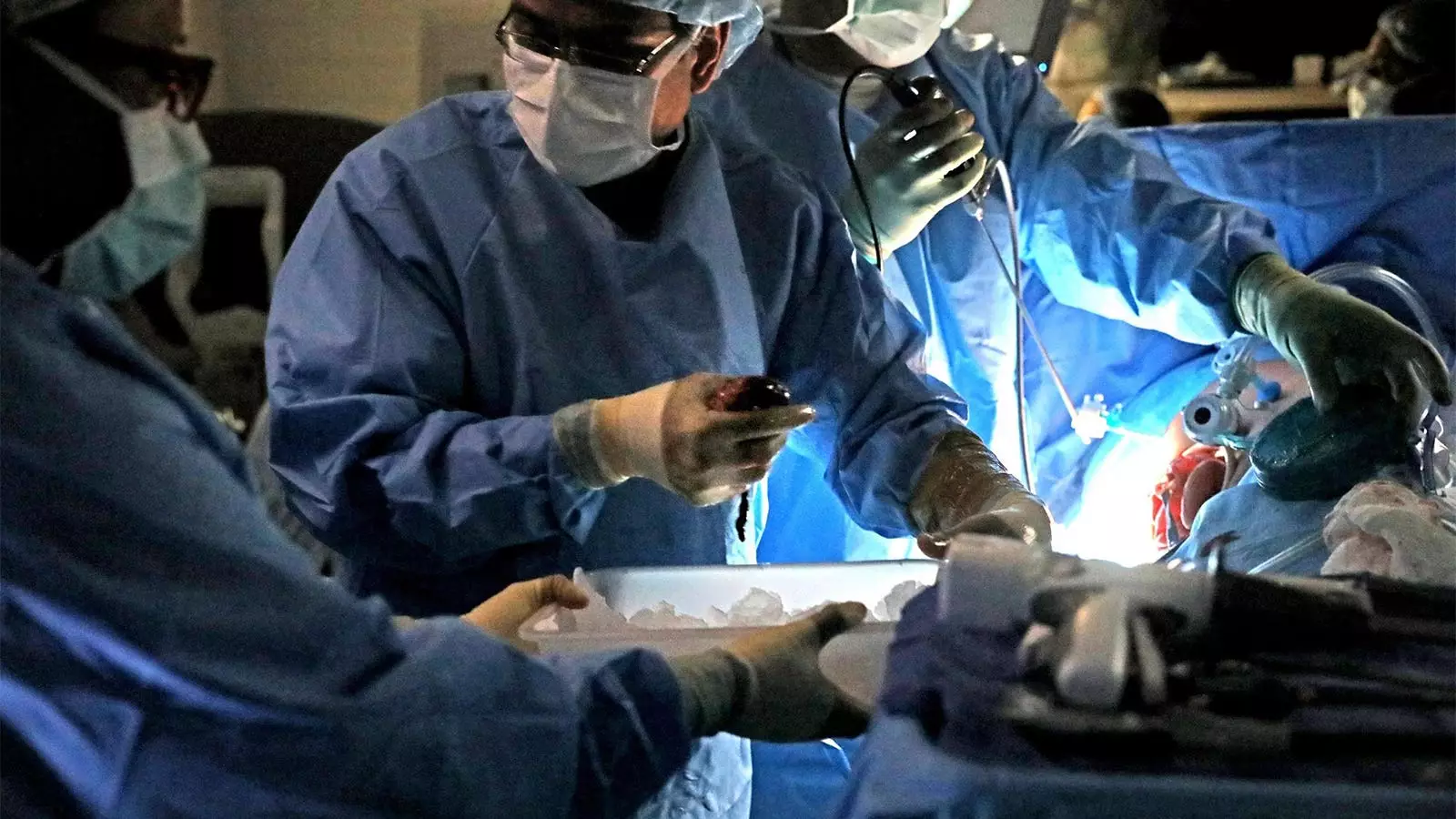The story of Simon and his friend Andre highlights a disturbing reality about organ donation that many may not recognize until they’re faced with the crisis of organ failure. Andre’s diagnosis of kidney disease dramatically shifted not only his life but also the life of his friend, Simon, forcing him into the difficult position of having to choose between financial stability and the chance to save a life. This narrative is emblematic of the broader issues surrounding organ donation, particularly the barriers faced by living donors.
In the U.S., the organ transplant waiting list has ballooned to over 100,000 individuals, with 17 lives lost daily due to a lack of available organs. This alarming statistic illustrates a profound disparity between the growing need for transplants and the limited supply of donor organs. Living organ donation offers a potential solution to this crisis; it is a voluntary act wherein a healthy individual donates an organ, typically a kidney or a portion of the liver, while still retaining enough organ function for their own survival. The impact of such donations can be life-altering for recipients suffering from end-stage organ disease, providing them with a renewed lease on life.
Despite the clear benefits, systemic issues exist that deter potential living donors. Simon’s experience underscores one of the most significant obstacles: the financial burden associated with organ donation. Donors often face out-of-pocket expenses related to surgery and recovery, compounded by the loss of income if their employers do not provide adequate leave policies. This financial toxicity can deter many well-meaning individuals from stepping forward to help others in desperate need.
The landscape for living organ donation is riddled with hurdles that discourage participation. While the Affordable Care Act is designed to prevent discrimination against individuals with pre-existing conditions, the practical realities of health and life insurance can still discourage potential donors. Increased premiums or outright denial of coverage are legitimate fears for those considering donation. This complex web of financial repercussions creates an environment of hesitation, forcing potential donors to weigh their altruistic intentions against their economic realities.
Additionally, the Family and Medical Leave Act (FMLA) does provide some necessary protections, permitting eligible employees to take time off for organ donation surgery. However, these provisions are not universally applicable, leaving many individuals without safeguards to protect their employment during the vital recovery period. The inconsistencies are stark, as some states implement more robust legislation while others leave many donors vulnerable.
Recognizing the challenges faced by living donors, several legislative initiatives have been proposed to introduce necessary reforms. The Living Donor Protection Act, introduced in 2021, aims to alleviate the anxiety surrounding insurance coverage by assuring potential donors that they will not face penalties or increased costs due to their decision to donate. Clarifying that organ donation surgery qualifies as a serious health condition under FMLA is another crucial step toward ensuring that employees can safely recover without jeopardizing their jobs.
Furthermore, the Honor Our Living Donors (HOLD) Act suggests that financial aid for organ donation should be based on the donor’s income instead of the recipient’s, thereby streamlining and equitably distributing resources for potential donors. The Living Organ Donor Tax Credit Act also proposes a much-needed financial incentive by offering a tax credit for expenses incurred as a result of organ donation.
Yet, despite the pressing nature of these reforms, progress has been sluggish. Political polarization undermines the efficacy of bipartisan efforts, allowing critical initiatives to languish in legislative limbo. It raises the question: how many more lives could be saved if these commonsense measures were enacted?
To truly address the organ shortage crisis, society must shift its perspective to place value on the sacrifices made by living donors. Encouraging living organ donation is not merely about increasing numbers; it is about fostering an environment where altruism is incentivized, and logistical and financial barriers are minimized or eliminated altogether. No potential donor, like Simon, should have to endure overwhelming financial stress for merely wanting to help a friend in need.
While the human spirit’s inclination towards generosity remains strong, systemic issues in the organ donation framework must be addressed through targeted reforms. By prioritizing legislation that safeguards living donors and incentivizes organ donation, we can create a more supportive and efficient organ transplant system that ultimately saves lives. Every effort made in this arena has the potential to change lives, both for the recipient and the donor. It’s time to ensure that those who wish to save a life can do so without sacrificing their own financial well-being in the process.


Leave a Reply